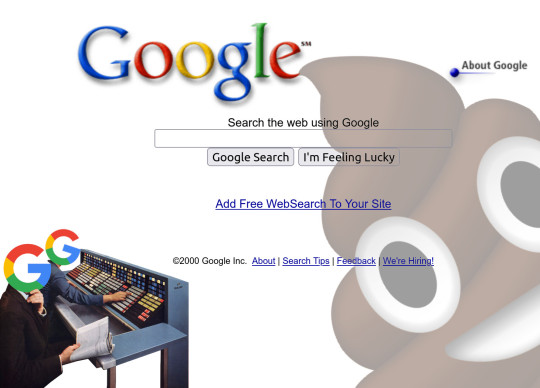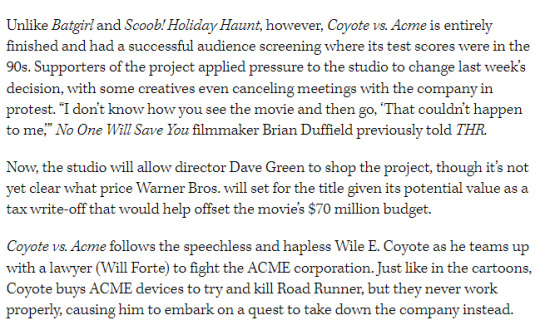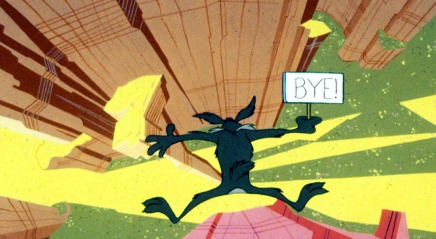#antitrust
Text
Big news: Google has lost its first antitrust case. Via Matt Stoller:
So what happens now? In this case, the judge will come up with remedies next year. The order could be broad, and will likely loosen Google’s control over the mobile app ecosystem. Google has already announced that it will appeal, so the case isn’t over.
That said, Google is likely to be in trouble now, because it is facing multiple antitrust cases, and these kinds of decisions have a bandwagon effect. The precedent is set, in every case going forward the firm will now be seen as presumed guilty, since a jury found Google has violated antitrust laws. Judges are cautious, and are generally afraid of being the first to make a precedent-setting decision. Now they won’t have to. In fact, judges and juries will now have to find a reason to rule for Google. If, say, Judge Amit Mehta in D.C., facing a very similar fact-pattern, chooses to let Google off the hook, well, he’ll look pretty bad.
11K notes
·
View notes
Text
Google’s enshittification memos

[Note, 9 October 2023: Google disputes the veracity of this claim, but has declined to provide the exhibits and testimony to support its claims. Read more about this here.]

When I think about how the old, good internet turned into the enshitternet, I imagine a series of small compromises, each seemingly reasonable at the time, each contributing to a cultural norm of making good things worse, and worse, and worse.
Think about Unity President Marc Whitten's nonpology for his company's disastrous rug-pull, in which they declared that everyone who had paid good money to use their tool to make a game would have to keep paying, every time someone downloaded that game:
The most fundamental thing that we’re trying to do is we’re building a sustainable business for Unity. And for us, that means that we do need to have a model that includes some sort of balancing change, including shared success.
https://www.wired.com/story/unity-walks-back-policies-lost-trust/
"Shared success" is code for, "If you use our tool to make money, we should make money too." This is bullshit. It's like saying, "We just want to find a way to share the success of the painters who use our brushes, so every time you sell a painting, we want to tax that sale." Or "Every time you sell a house, the company that made the hammer gets to wet its beak."
And note that they're not talking about shared risk here – no one at Unity is saying, "If you try to make a game with our tools and you lose a million bucks, we're on the hook for ten percent of your losses." This isn't partnership, it's extortion.
How did a company like Unity – which became a market leader by making a tool that understood the needs of game developers and filled them – turn into a protection racket? One bad decision at a time. One rationalization and then another. Slowly, and then all at once.
When I think about this enshittification curve, I often think of Google, a company that had its users' backs for years, which created a genuinely innovative search engine that worked so well it seemed like *magic, a company whose employees often had their pick of jobs, but chose the "don't be evil" gig because that mattered to them.
People make fun of that "don't be evil" motto, but if your key employees took the gig because they didn't want to be evil, and then you ask them to be evil, they might just quit. Hell, they might make a stink on the way out the door, too:
https://theintercept.com/2018/09/13/google-china-search-engine-employee-resigns/
Google is a company whose founders started out by publishing a scientific paper describing their search methodology, in which they said, "Oh, and by the way, ads will inevitably turn your search engine into a pile of shit, so we're gonna stay the fuck away from them":
http://infolab.stanford.edu/pub/papers/google.pdf
Those same founders retained a controlling interest in the company after it went IPO, explaining to investors that they were going to run the business without having their elbows jostled by shortsighted Wall Street assholes, so they could keep it from turning into a pile of shit:
https://abc.xyz/investor/founders-letters/ipo-letter/
And yet, it's turned into a pile of shit. Google search is so bad you might as well ask Jeeves. The company's big plan to fix it? Replace links to webpages with florid paragraphs of chatbot nonsense filled with a supremely confident lies:
https://pluralistic.net/2023/05/14/googles-ai-hype-circle/
How did the company get this bad? In part, this is the "curse of bigness." The company can't grow by attracting new users. When you have 90%+ of the market, there are no new customers to sign up. Hypothetically, they could grow by going into new lines of business, but Google is incapable of making a successful product in-house and also kills most of the products it buys from other, more innovative companies:
https://killedbygoogle.com/
Theoretically, the company could pursue new lines of business in-house, and indeed, the current leaders of companies like Amazon, Microsoft and Apple are all execs who figured out how to get the whole company to do something new, and were elevated to the CEO's office, making each one a billionaire and sealing their place in history.
It is for this very reason that any exec at a large firm who tries to make a business-wide improvement gets immediately and repeatedly knifed by all their colleagues, who correctly reason that if someone else becomes CEO, then they won't become CEO. Machiavelli was an optimist:
https://pluralistic.net/2023/07/28/microincentives-and-enshittification/
With no growth from new customers, and no growth from new businesses, "growth" has to come from squeezing workers (say, laying off 12,000 engineers after a stock buyback that would have paid their salaries for the next 27 years), or business customers (say, by colluding with Facebook to rig the ad market with the Jedi Blue conspiracy), or end-users.
Now, in theory, we might never know exactly what led to the enshittification of Google. In theory, all of compromises, debates and plots could be lost to history. But tech is not an oral culture, it's a written one, and techies write everything down and nothing is ever truly deleted.
Time and again, Big Tech tells on itself. Think of FTX's main conspirators all hanging out in a group chat called "Wirefraud." Amazon naming its program targeting weak, small publishers the "Gazelle Project" ("approach these small publishers the way a cheetah would pursue a sickly gazelle”). Amazon documenting the fact that users were unknowingly signing up for Prime and getting pissed; then figuring out how to reduce accidental signups, then deciding not to do it because it liked the money too much. Think of Zuck emailing his CFO in the middle of the night to defend his outsized offer to buy Instagram on the basis that users like Insta better and Facebook couldn't compete with them on quality.
It's like every Big Tech schemer has a folder on their desktop called "Mens Rea" filled with files like "Copy_of_Premeditated_Murder.docx":
https://doctorow.medium.com/big-tech-cant-stop-telling-on-itself-f7f0eb6d215a?sk=351f8a54ab8e02d7340620e5eec5024d
Right now, Google's on trial for its sins against antitrust law. It's a hard case to make. To secure a win, the prosecutors at the DoJ Antitrust Division are going to have to prove what was going on in Google execs' minds when the took the actions that led to the company's dominance. They're going to have to show that the company deliberately undertook to harm its users and customers.
Of course, it helps that Google put it all in writing.
Last week, there was a huge kerfuffile over the DoJ's practice of posting its exhibits from the trial to a website each night. This is a totally normal thing to do – a practice that dates back to the Microsoft antitrust trial. But Google pitched a tantrum over this and said that the docs the DoJ were posting would be turned into "clickbait." Which is another way of saying, "the public would find these documents very interesting, and they would be damning to us and our case":
https://www.bigtechontrial.com/p/secrecy-is-systemic
After initially deferring to Google, Judge Amit Mehta finally gave the Justice Department the greenlight to post the document. It's up. It's wild:
https://www.justice.gov/d9/2023-09/416692.pdf
The document is described as "notes for a course on communication" that Google VP for Finance Michael Roszak prepared. Roszak says he can't remember whether he ever gave the presentation, but insists that the remit for the course required him to tell students "things I didn't believe," and that's why the document is "full of hyperbole and exaggeration."
OK.
But here's what the document says: "search advertising is one of the world's greatest business models ever created…illicit businesses (cigarettes or drugs) could rival these economics…[W]e can mostly ignore the demand side…(users and queries) and only focus on the supply side of advertisers, ad formats and sales."
It goes on to say that this might be changing, and proposes a way to balance the interests of the search and ads teams, which are at odds, with search worrying that ads are pushing them to produce "unnatural search experiences to chase revenue."
"Unnatural search experiences to chase revenue" is a thinly veiled euphemism for the prophetic warnings in that 1998 Pagerank paper: "The goals of the advertising business model do not always correspond to providing quality search to users." Or, more plainly, "ads will turn our search engine into a pile of shit."
And, as Roszak writes, Google is "able to ignore one of the fundamental laws of economics…supply and demand." That is, the company has become so dominant and cemented its position so thoroughly as the default search engine across every platforms and system that even if it makes its search terrible to goose revenues, users won't leave. As Lily Tomlin put it on SNL: "We don't have to care, we're the phone company."
In the enshittification cycle, companies first lure in users with surpluses – like providing the best search results rather than the most profitable ones – with an eye to locking them in. In Google's case, that lock-in has multiple facets, but the big one is spending billions of dollars – enough to buy a whole Twitter, every single year – to be the default search everywhere.
Google doesn't buy its way to dominance because it has the very best search results and it wants to shield you from inferior competitors. The economically rational case for buying default position is that preventing competition is more profitable than succeeding by outperforming competitors. The best reason to buy the default everywhere is that it lets you lower quality without losing business. You can "ignore the demand side, and only focus on advertisers."
For a lot of people, the analysis stops here. "If you're not paying for the product, you're the product." Google locks in users and sells them to advertisers, who are their co-conspirators in a scheme to screw the rest of us.
But that's not right. For one thing, paying for a product doesn't mean you won't be the product. Apple charges a thousand bucks for an iPhone and then nonconsensually spies on every iOS user in order to target ads to them (and lies about it):
https://pluralistic.net/2022/11/14/luxury-surveillance/#liar-liar
John Deere charges six figures for its tractors, then runs a grift that blocks farmers from fixing their own machines, and then uses their control over repair to silence farmers who complain about it:
https://pluralistic.net/2022/05/31/dealers-choice/#be-a-shame-if-something-were-to-happen-to-it
Fair treatment from a corporation isn't a loyalty program that you earn by through sufficient spending. Companies that can sell you out, will sell you out, and then cry victim, insisting that they were only doing their fiduciary duty for their sacred shareholders. Companies are disciplined by fear of competition, regulation or – in the case of tech platforms – customers seizing the means of computation and installing ad-blockers, alternative clients, multiprotocol readers, etc:
https://doctorow.medium.com/an-audacious-plan-to-halt-the-internets-enshittification-and-throw-it-into-reverse-3cc01e7e4604?sk=85b3f5f7d051804521c3411711f0b554
Which is where the next stage of enshittification comes in: when the platform withdraws the surplus it had allocated to lure in – and then lock in – business customers (like advertisers) and reallocate it to the platform's shareholders.
For Google, there are several rackets that let it screw over advertisers as well as searchers (the advertisers are paying for the product, and they're also the product). Some of those rackets are well-known, like Jedi Blue, the market-rigging conspiracy that Google and Facebook colluded on:
https://en.wikipedia.org/wiki/Jedi_Blue
But thanks to the antitrust trial, we're learning about more of these. Megan Gray – ex-FTC, ex-DuckDuckGo – was in the courtroom last week when evidence was presented on Google execs' panic over a decline in "ad generating searches" and the sleazy gimmick they came up with to address it: manipulating the "semantic matching" on user queries:
https://www.wired.com/story/google-antitrust-lawsuit-search-results/
When you send a query to Google, it expands that query with terms that are similar – for example, if you search on "Weds" it might also search for "Wednesday." In the slides shown in the Google trial, we learned about another kind of semantic matching that Google performed, this one intended to turn your search results into "a twisted shopping mall you can’t escape."
Here's how that worked: when you ran a query like "children's clothing," Google secretly appended the brand name of a kids' clothing manufacturer to the query. This, in turn, triggered a ton of ads – because rival brands will have bought ads against their competitors' name (like Pepsi buying ads that are shown over queries for Coke).
Here we see surpluses being taken away from both end-users and business customers – that is, searchers and advertisers. For searchers, it doesn't matter how much you refine your query, you're still going to get crummy search results because there's an unkillable, hidden search term stuck to your query, like a piece of shit that Google keeps sticking to the sole of your shoe.
But for advertisers, this is also a scam. They're paying to be matched to users who search on a brand name, and you didn't search on that brand name. It's especially bad for the company whose name has been appended to your search, because Google has a protection racket where the company that matches your search has to pay extra in order to show up overtop of rivals who are worse matches. Both the matching company and those rivals have given Google a credit-card that Google gets to bill every time a user searches on the company's name, and Google is just running fraudulent charges through those cards.
And, of course, Google put this in writing. I mean, of course they did. As we learned from the documentary The Incredibles, supervillains can't stop themselves from monologuing, and in big, sprawling monopolists, these monologues have to transmitted electronically – and often indelibly – to far-flung co-cabalists.
As Gray points out, this is an incredibly blunt enshittification technique: "it hadn’t even occurred to me that Google just flat out deletes queries and replaces them with ones that monetize better." We don't know how long Google did this for or how frequently this bait-and-switch was deployed.
But if this is a blunt way of Google smashing its fist down on the scales that balance search quality against ad revenues, there's plenty of subtler ways the company could sneak a thumb on there. A Google exec at the trial rhapsodized about his company's "contract with the user" to deliver an "honest results policy," but given how bad Google search is these days, we're left to either believe he's lying or that Google sucks at search.
The paper trail offers a tantalizing look at how a company went from doing something that was so good it felt like a magic trick to being "able to ignore one of the fundamental laws of economics…supply and demand," able to "ignore the demand side…(users and queries) and only focus on the supply side of advertisers."
What's more, this is a system where everyone loses (except for Google): this isn't a grift run by Google and advertisers on users – it's a grift Google runs on everyone.

If you'd like an essay-formatted version of this post to read or share, here's a link to it on pluralistic.net, my surveillance-free, ad-free, tracker-free blog:
https://pluralistic.net/2023/10/03/not-feeling-lucky/#fundamental-laws-of-economics


My next novel is The Lost Cause, a hopeful novel of the climate emergency. Amazon won't sell the audiobook, so I made my own and I'm pre-selling it on Kickstarter!
#pluralistic#enshittification#semantic matching#google#antitrust#trustbusting#transparency#fatfingers#serp#the algorithm#telling on yourself
6K notes
·
View notes
Text
The funniest possible outcome of all these Google antitrust disclosures re: deceptively re-writing people's search queries in order to maximise Google's ad revenue would be if the corporations that paid for those ads decide that Google has been defrauding them the whole time. The ultimate "bite each other's dicks off" scenario.
#computers#technology#internet#search engines#google#antitrust#current events#violence mention#penis metion
2K notes
·
View notes
Link
Microsoft Corp.’s $69 billion takeover of Activision Blizzard Inc. suffered a hammer blow after Britain’s antitrust watchdog vetoed the gaming industry’s biggest ever deal, saying it would harm competition in cloud gaming.
The Competition and Markets Authority said its concerns couldn’t be solved by remedies such as the sale of blockbuster title Call of Duty or so-called behavioral remedies involving promises to permit rivals to offer the game on their platforms, according to a statement Wednesday.
Pressure had been mounting on Microsoft as it lobbies at home and in Europe to convince watchdogs to clear the deal — one of the 30 biggest acquisitions of all time. Crucially, the CMA’s conclusions comes before decisions from the European Union and the US Federal Trade Commission, which is awaiting a hearing in the summer after formally suing to veto the transaction.
“Microsoft already enjoys a powerful position and head start over other competitors in cloud gaming and this deal would strengthen that advantage giving it the ability to undermine new and innovative competitors,” Martin Coleman, chair of the independent panel of experts conducting this investigation, said.
The CMA took a view that the merger could result in higher prices, fewer choices and less innovation for UK gamers.
288 notes
·
View notes
Text
I will invite younger Leftists to remember that we don’t have to do away with currency entirely to restrict the currently unmitigated powers of the Ultra-Rich. Remember that it used to be legal to own people. We changed the rules about what you were allowed to buy and sell, and society got better. Not perfect, but better.
For example: imagine a world where you could only buy a home you intended to live in for at least half the year. Maximum 2 homes. Additionally, we could change the rules so that Corporate entities, (such as investment banks) were not allowed to rent out single family dwellings. Imagine what a difference that would make!
I know a revolutionary narrative has a certain appeal, but there’s quite a lot we could do to improve society that doesn’t involve public executions and open war between citizens and police.
Another example: if we actually enforced the Sherman and Clayton Antitrust Acts, the conglomerated megacorporations that can rig elections and manipulate economies would be forced to break up into smaller entities that could be more effectively regulated.
The stuff going on with DeSantis and the Trans is… well, that’s bad. That’s a good reason to buy a gun, actually. But. The economic stuff. The money stuff. We could actually do a lot through the extant legal framework, we just need to get the right folks in office. Somehow.
Just. Food for thought.
227 notes
·
View notes
Text
“The FTC, which had reviewed the deal for more than a year, says in a press release that an executive from one of the two chains "reacted candidly" to the proposed merger by saying: "You are basically creating a monopoly in grocery with the merger.""
25 notes
·
View notes
Link
“The Justice Department and a group of eight states sued Google on Tuesday, accusing it of illegally abusing a monopoly over the technology that powers online advertising, in the agency’s first antitrust lawsuit against a tech giant under President Biden and an escalation in legal pressure on one of the world’s biggest internet companies.
The lawsuit said Google had “corrupted legitimate competition in the ad tech industry by engaging in a systematic campaign to seize control of the wide swath of high-tech tools used by publishers, advertisers and brokers to facilitate digital advertising.”
The lawsuit asked U.S. District Court for the Eastern District of Virginia to force Google to sell much of its suite of ad technology products, which include software for buying and selling ads, a marketplace to complete the transactions and a service for showcasing the ads across the internet. The lawsuit also asked the court to stop the company from engaging in allegedly anticompetitive practices...
The new lawsuit “adds another important complication to Google’s efforts to deal with regulators worldwide,” said William Kovacic, a former chairman of the Federal Trade Commission. “There’s a chance one or more of these challenges is going to make its way through and hit the target...”
Attorney General Merrick B. Garland said monopolies “threaten the free and fair markets upon which our economy is based.” He added, “We will aggressively protect consumers, safeguard competition and work to ensure economic fairness and opportunity for all.”
The Biden administration is trying to use uncommon legal theories to clip the wings of some of America’s largest businesses. The F.T.C. recently asked a judge to block Meta from buying a virtual-reality start-up, a rare case that argues a deal could harm potential competition in a nascent market. The agency has also challenged Microsoft’s $69 billion purchase of the video game publisher Activision Blizzard, a notable action because the two companies are not primarily seen as direct competitors.
These efforts are expected to meet fierce resistance in federal courts. Judges have for decades subscribed to a view that antitrust violations should mostly be determined by whether they increase prices for consumers. But Jonathan Kanter, the chief of the Justice Department’s antitrust division, and Lina Khan, the F.T.C. chair, have said they are willing to lose cases that allow them to stretch the boundaries of the law and that put corporate America on notice.”
-via The New York Times, 1/24/23
#justice department#doj#merrick garland#biden#google#online ads#advertising industry news#advertising#monopoly#antitrust#us politics#corporations#big tech#good news#hope
210 notes
·
View notes
Quote
Antitrust action works, in part, not just because of the explicit conditions of a consent decree, but because companies limit themselves. They are afraid of getting back into court, because they know that next time a break-up might be on the agenda.
A few thoughts on the Apple DOJ antitrust case, from someone who isn’t riding his first rodeo
19 notes
·
View notes
Text
Wait, the US election is for a president? I thought it was a poll on whether the FTC should keep suing Amazon
11 notes
·
View notes
Photo



Swifties vs Ticketmaster right now
#giphy#taylor swift#blank space#blank space music video#blank space mv#ticketmaster#antitrust#eras tour#the eras tour#ticket fail#tickets#concert
184 notes
·
View notes
Text

16 notes
·
View notes
Text
In a 14-page written opinion, presiding district court judge Gregory Woods called magistrate judge Valerie Figueredo’s July 31, 2023, report and recommendation “thoughtful and well-reasoned,” and adopted it in full. Figeuerdo’s report found sufficient evidence to "plausibly" allege that Amazon’s conduct, including the imposition of various allegedly restrictive contract provisions, has led to “reduced competition” in the e-book marketplace and “higher e-book prices for consumers.” While the report rejected a number of the plaintiffs’ claims, it recommended that two claims against Amazon, “monopolization” and “attempted monopolization,” be allowed to proceed.
“Amazon’s arguments fail at this pleading stage,” Woods ruled, noting the plaintiffs are entitled to “all reasonable inferences drawn in their favor from their non-conclusory allegations,” including claims that Amazon’s contractual provisions with the publishers impose “material restrictions on publishers’ ability to freely contract with other eBook retailers and therefore have anticompetitive effects.” Woods also accepted Figueredo's conclusion that there was no evidence of the Big Five publishers conspiring with Amazon or each other to fix e-book prices, and ordered “the dismissal of the Publishers from this case.”
READ MORE
5 notes
·
View notes
Text
All the talk about Dems and Republicans being the same rings really hollow to me because I follow a lot of blogs that cover antitrust and monopoly enforcement, and the news from the Biden administration has been some of the best anyone my age has ever heard. Lina Kahn has taken her role as head of the FTC seriously and has been making big moves.
The news today? The FTC has eliminated non-compete agreements. Y'know, those "agreements" stuck in contracts that cover a whopping 18% of the US workforce and effectively prevent them from changing jobs.
This is just one example of what Kahn's FTC has been up to. Maybe you heard the Biden administration capped the price of Insulin to $35 (although judging from the news coverage, you probably heard about it with some pretty substantial negative spin). Maybe you heard about the ongoing antitrust lawsuits against Amazon and Google.
I dunno, there's a lot of doom and gloom, and if you say this doesn't matter much compared to the issues Biden is failing on, I can't argue with that. His handling of Gaza is genuinely heinous for all the reasons US policy on Israel is usually heinous and then some.
I just don't think that a Republican replacement would handle the situation much better.
Antitrust and labor are aspects where the Biden admin is meaningfully different from any recent Republican administration. They seem to actually care about antitrust and bringing the absurd power of corporate monopoly under control. They're taking concrete steps to improve things for the average US worker and consumer, and I wish there was more attention being paid to what are unambiguously good, important things happening.
3 notes
·
View notes
Text




#coyote vs acme#warner bros#wbd#politics#joaquin castro#texas politics#antitrust lawsuit#antitrust#pop culture#legal#david zaslav
10 notes
·
View notes
Quote
Today, at long last, after generations of deadly corporate power-grabs, we are living through an ecology moment where all kind of fights are coalescing into one big fight: the fight to save democracy from oligarchy. There are many tributaries flowing into this mighty river, but two of the largest are antitrust and labor. Antitrust seeks to ensure that our world is regulated by democratically accountable lawmakers who deliberate in public, rather than shareholder-accountable monopolists who deliberate in smoke-filled rooms. Labor seeks to ensure that contests between profit for the few and prosperity for the many are decided in favor of people, not profit.
Cory Doctorow
18 notes
·
View notes